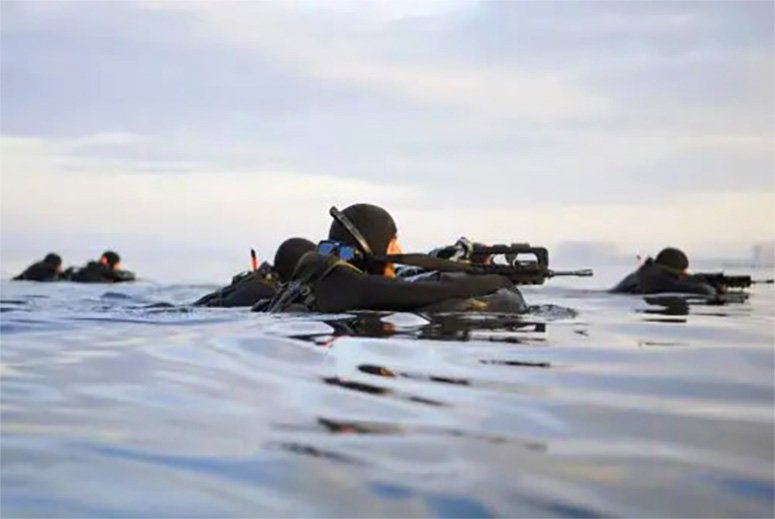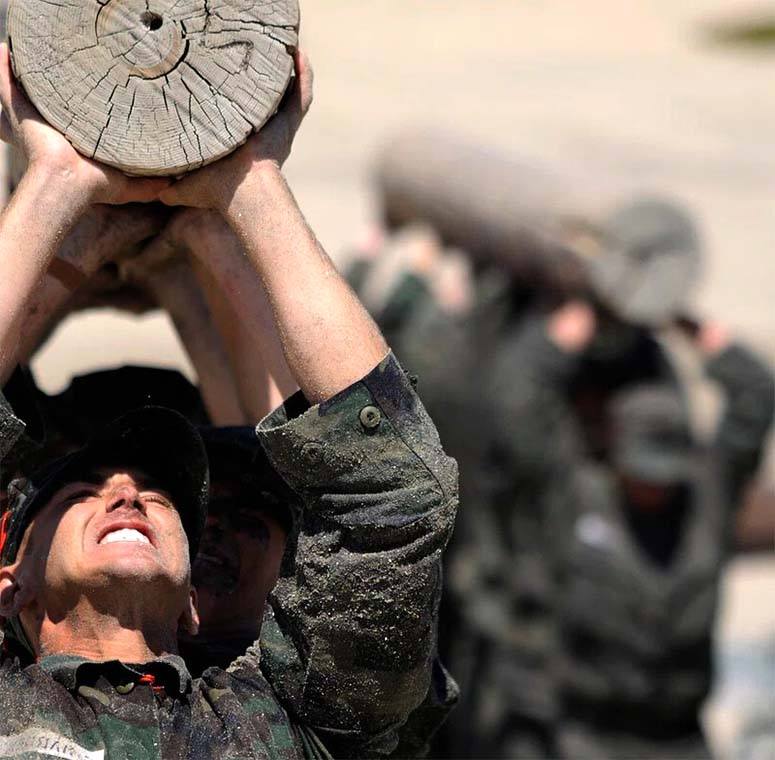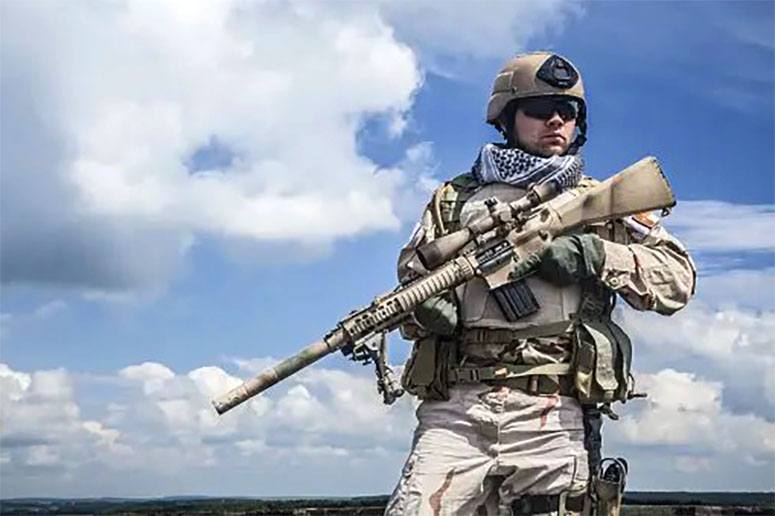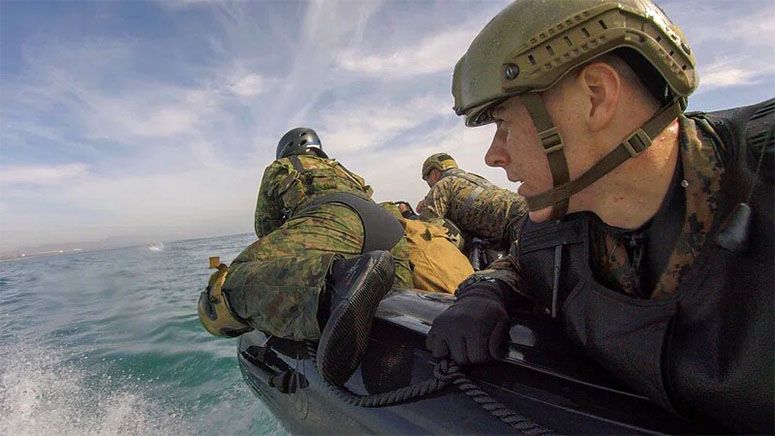Contents
Becoming a Navy SEAL is a journey characterized by rigorous challenges, unwavering determination, and exceptional skills.
This article examines the multifaceted requirements necessary for joining this elite force, including physical fitness, mental resilience, specialized swimming, and combat abilities.
Additionally, it addresses the daunting selection process and asks the critical question – what are the odds of becoming a Navy SEAL?
Understanding these odds highlights the incredible level of commitment and talent required to succeed, as well as the incredible benefits associated with attaining this prestigious title.
Insights will be provided on how to enhance one’s chances and the various career paths available for those who succeed.
Prepare to gain a comprehensive understanding of what it truly takes to don the Navy SEAL trident.
Becoming a Navy SEAL necessitates exceptional dedication, resilience, and a thorough understanding of the physical and mental challenges presented by one of the most demanding training programs within the military.
The process begins with a rigorous selection procedure that evaluates candidates’ qualifications, which encompass physical fitness, mental fortitude, and the ability to collaborate effectively within teams.
As elite operatives of the U.S. Navy, SEALs must not only achieve stringent physical standards but also exhibit leadership capabilities and a steadfast commitment to serve in extreme conditions.
This makes the career path uniquely challenging, requiring unparalleled perseverance and discipline.
1. Physical requirements
The physical requirements to become a Navy SEAL are among the most stringent in the military, with candidates required to pass comprehensive assessments that evaluate their overall fitness and endurance levels.
Key evaluations include the swim test, obstacle course, and a series of physical training (PT) examinations that assess strength, agility, and cardiovascular capabilities.
Along with these foundational assessments, candidates must also excel in distance running events and demonstrate outstanding performance in exercises such as push-ups, sit-ups, and pull-ups.
Each element of the selection process is meticulously designed not only to challenge physical attributes but also to evaluate mental resilience.
Maintaining high health standards throughout this demanding training is crucial, as it directly impacts a candidate’s ability to endure under pressure.
Endurance is particularly critical, as the operational demands of Navy SEAL missions require individuals who can sustain their physical and mental capabilities over extended periods, thereby ensuring they are equipped to confront the unexpected challenges inherent to their missions.
2. Mental toughness
Mental toughness is an essential element for achieving success in the Navy SEAL selection process, as candidates must undergo rigorous psychological evaluations designed to assess their resilience and adaptability in high-stress situations.
This mental fortitude not only enhances physical performance but is also crucial for effectively addressing the unpredictable challenges encountered during missions.
The psychological assessments are intended to identify candidates who exhibit traits such as emotional stability, perseverance, and the capacity to maintain composure under pressure.
Evaluators seek indicators that reveal how well individuals can manage fear and adjust to rapidly changing environments—qualities that are vital in scenarios where split-second decisions can significantly impact mission success or failure.
The ability to sustain focus and determination amidst adversity is highly regarded, as it indicates the candidate’s potential to excel in the demanding and often chaotic environment of special operations.
Collectively, these attributes constitute the foundation of mental resilience, establishing the groundwork for effective teamwork and successful mission outcomes.
3. Swimming abilities

Swimming abilities are essential for Navy SEALs, as maritime operations constitute a fundamental aspect of their missions.
Consequently, the swim test serves as a critical evaluation during the selection process.
Candidates are required to demonstrate exceptional swimming skills and endurance, reflecting their capacity to operate effectively in varied aquatic environments.
This rigorous assessment evaluates not only their physical capabilities, including stamina and strength, but also ensures that they have mastered essential swimming techniques, such as freestyle and combat side stroke.
The ability to navigate challenging waters with agility and confidence is paramount, as SEALs frequently engage in covert underwater missions that demand both speed and precision.
Therefore, proficiency in swimming is not merely a test but rather a vital skill that prepares these operatives for survival and success in high-stakes scenarios, reinforcing their readiness to address the diverse challenges associated with maritime warfare.
4. Combat skills
Combat skills are fundamental for Navy SEALs, as they undertake specialized operations that necessitate not only physical capability but also tactical knowledge and combat preparedness.
Their training encompasses marksmanship, small unit tactics, and various combat scenarios specifically designed to equip candidates for real-world missions.
Among the numerous aspects of their training, marksmanship is particularly critical, requiring individuals to attain mastery in precision shooting across various conditions, whether under stress or during covert operations.
Navy SEALs participate in rigorous live-fire exercises that enhance their accuracy and response times, ensuring they can effectively neutralize threats from a distance.
Tactical operations training underscores the importance of teamwork, instructing personnel on how to maneuver strategically within small units to achieve mission objectives.
This training includes mastering techniques such as close-quarters combat, ambush strategies, and the ability to assess and adapt to dynamic environments.
Collectively, these skills form the foundation of the SEALs’ operational effectiveness, rendering them a formidable force capable of executing complex assignments with precision and efficiency.
The likelihood of becoming a Navy SEAL is well-documented to be low, primarily due to the highly competitive selection process and the substantial attrition rate during training.
Out of the thousands of candidates who apply, only a small percentage successfully complete the rigorous assessments and training necessary to achieve the esteemed designation of a Navy SEAL.
1. Selection process
The selection process for Navy SEALs is a comprehensive evaluation designed to identify candidates who possess the requisite recruitment qualifications, physical fitness, and mental resilience necessary to succeed in demanding military operations.
This process encompasses various assessments, including physical tests, psychological evaluations, and background checks, to ensure that only the most qualified individuals advance.
Each stage of the selection journey is critical in assessing a candidate’s ability to endure the intense conditions characteristic of special operations.
Candidates participate in a series of rigorous physical fitness tests, such as timed swims, obstacle courses, and endurance runs, which evaluate not only their athletic capabilities but also their ability to collaborate and demonstrate perseverance under pressure.
Psychological screenings and interviews are conducted to assess mental toughness and decision-making skills in high-stress situations, thereby reinforcing the program’s rigorous reputation.
The entire process is designed to filter out individuals who are not mentally or physically prepared for the extraordinary demands of service, ultimately equipping candidates for the unique challenges faced by Navy SEALs.
2. Attrition rate
The attrition rate for Navy SEAL training programs is notably high, with approximately 70-80% of candidates failing to complete the rigorous training regimen due to the immense physical and mental challenges they encounter.
This competitive process is structured to ensure that only the most capable individuals are selected to join these elite forces.
The demanding selection process is designed to evaluate candidates on multiple levels, pushing them to their limits through strenuous physical tests, sleep deprivation, and psychological endurance exercises.
Many aspirants find themselves unprepared for the extreme conditions they face, which include exposure to cold water and intense teamwork tasks that necessitate flawless collaboration under pressure.
The mental toughness required is often as challenging as the physical demands, resulting in significant stress and self-doubt among participants.
These factors, combined with the relentless pace of the training, contribute to the high dropout rate, as only those who can endure such trials and demonstrate exceptional resilience ultimately succeed in becoming a Navy SEAL.
3. Success rate
The success rate for candidates who complete the Navy SEAL selection process is notably low, which underscores the elite nature of this military branch.
With only approximately 20-30% of candidates successfully graduating from the rigorous training program, the emphasis on physical fitness, mental resilience, and teamwork becomes critically important.
This low success rate not only reflects the demanding standards established for aspiring SEALs but also highlights the necessity of resilience and adaptability when facing formidable challenges.
Candidates must demonstrate unwavering commitment and the capacity to collaborate effectively with others under intense pressure. The selection process rigorously eliminates those who may lack the essential qualities, thereby ensuring that only the most dedicated and capable individuals advance.
Consequently, it is evident that achieving success in this environment transcends mere physical ability – it necessitates a combination of mental fortitude, strategic thinking, and a spirit of camaraderie, further emphasizing the comprehensive nature of the training involved.
Becoming a Navy SEAL presents a variety of advantages, including distinctive career opportunities, a lifestyle marked by camaraderie and teamwork, as well as financial incentives that can be substantial.
The experience acquired through special operations significantly contributes to personal development and cultivates essential skills that are applicable in both military and civilian contexts.

Enhancing the likelihood of becoming a Navy SEAL necessitates a strategic approach that emphasizes rigorous physical training, comprehensive mental preparation, and the pursuit of mentorship from experienced individuals who have successfully completed the selection process.
Additionally, candidates should seek to acquire relevant experience that will strengthen their qualifications and readiness for the challenges they will face.
1. Physical training
A comprehensive physical training regimen is essential for individuals aspiring to become Navy SEALs, as it focuses on developing endurance, strength, and agility to meet the rigorous fitness standards mandated during the selection process.
The training program should encompass a variety of exercises designed to enhance cardiovascular capabilities and overall physical preparedness.
To adequately prepare for the challenges of SEAL training, candidates should engage in a diverse range of workouts, including interval running, swimming, and high-intensity circuit training.
Incorporating body weight exercises such as push-ups, pull-ups, and burpees can significantly enhance functional strength, while specialized routines targeting core stability and flexibility will improve agility.
Candidates may also benefit from cross-training activities, such as rowing or cycling, to further enhance their cardiovascular fitness.
Additionally, participating in partner workouts can boost motivation and simulate the teamwork required in actual Navy SEAL operations, thereby making training sessions more realistic and effective.
2. Mental Preparation
Mental preparation is of paramount importance for prospective Navy SEALs, as psychological resilience and the capacity to adapt to high-stress environments are critical for success in both the selection process and subsequent operational duties.
Developing mental toughness may involve techniques such as visualization, mindfulness, and effective stress management strategies.
By integrating these methods into their daily routines, candidates can establish a robust mental framework that supports them in challenging situations.
Visualization not only aids in anticipating potential obstacles but also facilitates the rehearsal of positive outcomes, thereby fostering a mindset oriented towards success.
Mindfulness practices encourage a focus on the present moment, which allows individuals to mitigate anxiety and cultivate greater control over their thoughts and emotions.
Additionally, learning effective stress management techniques, such as controlled breathing and cognitive reframing, enables candidates to respond adaptively to intense pressure, significantly enhancing their overall psychological fortitude.
3. Seeking mentorship
Seeking mentorship from individuals who have successfully completed Navy SEAL training can significantly enhance a candidate’s preparation and provide deeper insights into the selection process.
Mentors can offer invaluable guidance, share their experiences, and provide practical advice on navigating challenges and improving qualifications.
Their firsthand knowledge illuminates the physical and mental demands of the training while also fostering resilience and a strategic mindset necessary for success.
Experienced mentors frequently emphasize critical habits and techniques that may not be included in standard preparation materials, thereby offering tailored insights that can lead to enhanced performance.
This supportive relationship cultivates a network of trust and camaraderie, which is essential in the high-pressure environment of Navy SEAL training.
Therefore, seeking guidance from seasoned professionals can represent a transformative step toward achieving one’s aspirations within this elite force.
4. Gaining experience
Gaining relevant experience, whether through military service or related fields, is crucial for individuals aspiring to become Navy SEALs, as it cultivates adaptability and a comprehensive understanding of military culture.
Such experiences enhance a candidate’s preparedness and qualifications for the selection process.
To further improve their readiness, candidates may consider pursuing roles in the Marine Corps or participating in outdoor survival programs that emphasize teamwork, resilience, and physical fitness.
Engaging in competitive sports, particularly those that develop strength and endurance, can effectively mirror the rigorous demands of SEAL training.
Additionally, volunteering for leadership positions in various organizations not only hones decision-making skills but also fosters an understanding of camaraderie and a mission-focused mentality, both of which are essential attributes in the life of a Navy SEAL.
Consequently, exploring these diverse opportunities can significantly enhance a candidate’s potential for success.

Navy SEALs have access to a variety of career paths, encompassing specialized roles within special operations, as well as opportunities in government agencies and the private sector.
These diverse options enable SEALs to effectively utilize their unique skill sets and experiences across various fields following their military service.
1. Special operations forces
Navy SEALs primarily operate within special operations forces, undertaking tactical missions that necessitate a high level of expertise, extensive training, and adaptability across various environments.
Their elite status is characterized by their capability to execute complex missions with precision and effectiveness.
In diverse theaters of operation, these highly trained professionals engage in critical tasks, including counter-terrorism, direct action raids, and reconnaissance missions.
Each mission requires not only physical strength and endurance but also exceptional mental acuity, teamwork, and strategic planning skills.
SEALs are proficient in various forms of combat, intelligence gathering, and survival techniques, enabling them to thrive in challenging conditions, whether conducting underwater demolitions or executing land-based incursions.
The rigorous selection process guarantees that they possess the resilience and tactical proficiency necessary to adapt to rapidly evolving scenarios, ultimately reinforcing their reputation as a vital component of the United States‘ special operations community.
2. Government agencies
Upon completing their service, many Navy SEALs successfully transition into fulfilling careers within various government agencies, often in roles related to security, intelligence, and counter-terrorism.
Their unique experiences and specialized skill sets render them invaluable assets in these critical fields.
This transition enables them to apply their exceptional training in strategic operations and risk assessment, thereby making significant contributions to national security.
Numerous opportunities exist within organizations such as the Department of Homeland Security, where they can assume positions as intelligence analysts, tasked with developing strategies to mitigate potential threats.
Positions within the CIA or FBI allow these veterans to engage in operations that demand a nuanced understanding of both tactical and psychological warfare.
By leveraging their expertise in surveillance, reconnaissance, and team leadership, these professionals play a crucial role in enhancing safety protocols and improving intelligence-gathering efforts, ultimately fostering a more secure environment for all.
3. Private sector
The private sector offers a wide array of career opportunities for Navy SEALs, as their extensive training in leadership, teamwork, and strategic planning is highly applicable across various industries.
Many individuals successfully transition into roles that utilize their distinctive skill sets, particularly in high-pressure environments.
This adaptability enables them to excel in positions such as project management, security consultancy, and executive roles within corporations.
Their experience in navigating complex missions equips them with the critical thinking and decision-making capabilities essential for effective team management.
The resilience and discipline cultivated during military service render them invaluable assets in fast-paced corporate settings, where their ability to lead and motivate others can significantly influence a company’s success.
As these former service members make the transition to the civilian workforce, they bring not only a wealth of experience but also a unique perspective that fosters innovation and collaboration.
Scroll down the page to find our FAQ about the odds of becoming a Navy SEAL.
Uncover the captivating world of probabilities and extraordinary occurrences. Feed your curiosity and learn more by browsing our other articles at WhatAreTheOddsOf.NET.



